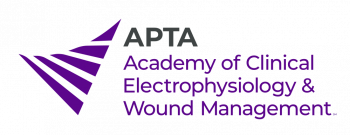The Acute Effects of TENS on Heart Rate Variability in Trained and Untrained Young Individuals.
Read the full text >Abstract
Purpose: Limited prior data have suggested a frequency dependent effect of transcutaneous electrical stimulation (TENS) on heart rate variability (HRV) and autonomic activity in healthy and hyper-tensive adults. The purpose of this study was to examine the acute effects of TENS on autonomically controlled variables of heart rate variability (HRV), heart rate (HR), and R-R interval, and further-more, to compare effects between cardio-endurance trained and untrained adults.
Methods: 18 young adults (23.75±1.91years) were assigned to trained or untrained groups based on criteria for recreationally active individuals from the American College of Sports Medicine. Autonomic parameters were monitored by infrared-photoplethysmography before, during, and after ad-ministration of high and low frequency TENS over two separate periods. A mixed-model ANOVA was used to assess differences between and within groups.
Results: Significant effects were found with the trained group having lower HR (p=0.001), higher HRV (p=0.025), and longer R-R intervals (p=0.001) than the untrained group, regardless of time or frequency of TENS. However, no significant frequency dependent effects were found in either sub-ject group.
Conclusions: The results of this study do not support prior reports of an acute effect of TENS on HRV or autonomic activity but do support exercise training as the most influential factor for improving autonomic function and regulation.
Keywords: TENS, Heart Rate, Autonomic



